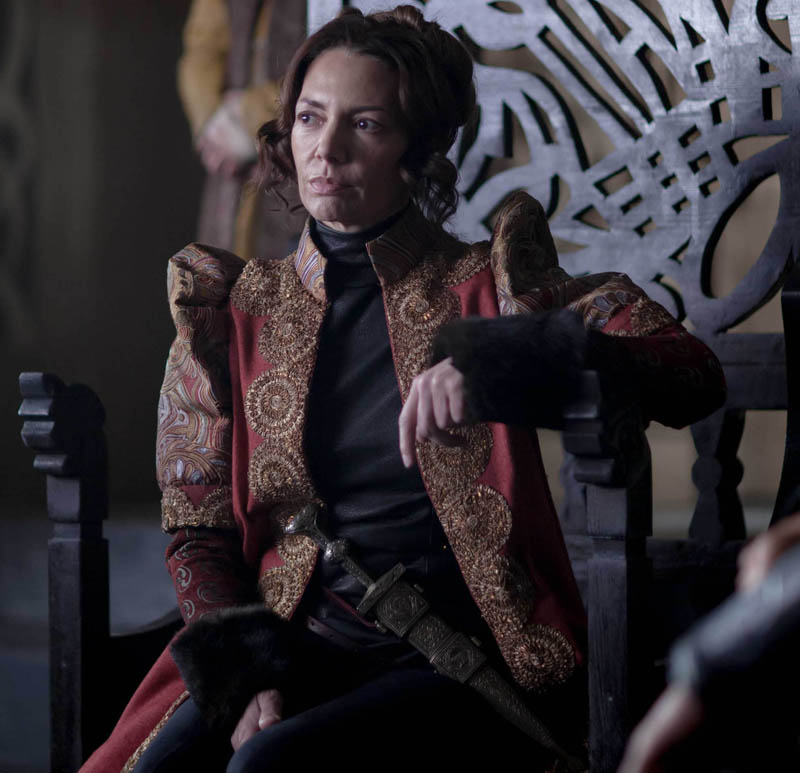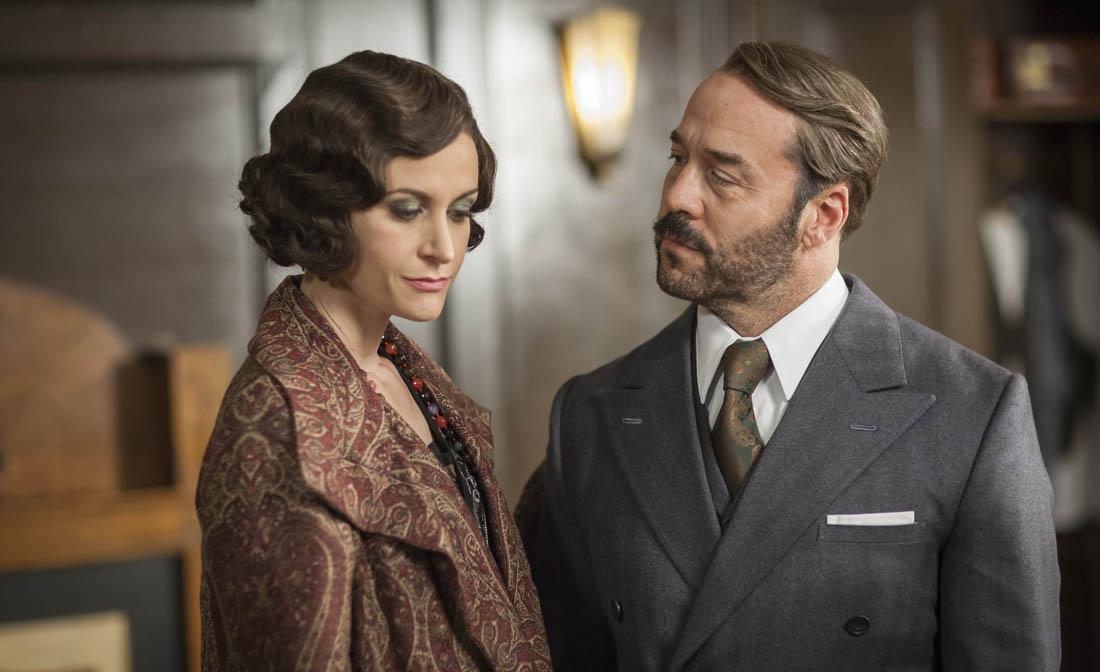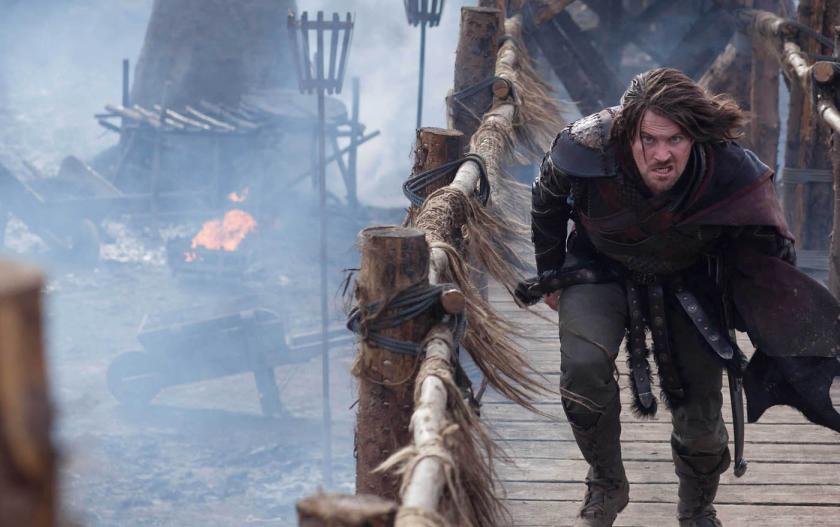The miracle of galloping digital technology has become a mixed blessing. We have iPads, space stations and self-parking cars. On the other hand, we also have what might be perfectly good TV programmes made ludicrous by absurd CGI monsters.
ITV's new-look Beowulf (★★) is an odd beast. Ostensibly, it's based on the epic Anglo-Saxon alliterative poem about the titular hero and his Scandinavian exploits, but students of Old English literature should look away now, because it's more like the computer game Clash of Clans, or a reduced-scale Game of Thrones with a cheaper cast. The best thing about it is the scenery, which is in Weardale, County Durham. A breathtaking expanse of moors, cliffs and windswept hillsides, it's far more eloquent than anything we hear in the dialogue.
 The story sticks to familiar historical-epic turf by being about family power struggles, jealousies and rivalries. After 20 years away, Beowulf (rugged and whiskery Kieran Bew) has returned to Herot, his childhood home in the so-called Shieldlands, to pay his respects to the dying Thane, Hrothgar (William Hurt). He finds himself in the midst of struggles both within and without Herot. After his death, Hrothgar's widow Rheda (Joanne Whalley, pictured right, wielding a scorched-earth stare) is struggling to establish her claim to the throne as other tribal Thanes gather to elect a new leader. Her son Slean (Ed Speleers) is disgruntled because he too wanted the top job, but looks as if he should probably stick to modelling for Abercrombie & Fitch.
The story sticks to familiar historical-epic turf by being about family power struggles, jealousies and rivalries. After 20 years away, Beowulf (rugged and whiskery Kieran Bew) has returned to Herot, his childhood home in the so-called Shieldlands, to pay his respects to the dying Thane, Hrothgar (William Hurt). He finds himself in the midst of struggles both within and without Herot. After his death, Hrothgar's widow Rheda (Joanne Whalley, pictured right, wielding a scorched-earth stare) is struggling to establish her claim to the throne as other tribal Thanes gather to elect a new leader. Her son Slean (Ed Speleers) is disgruntled because he too wanted the top job, but looks as if he should probably stick to modelling for Abercrombie & Fitch.
There's plenty to chew on, as Beowulf finds himself wrongly accused of murder and has to weed out secret assassins lurking at court, while coping with an extra layer of digitised monsters. The countryside is stalked by trolls, hairy ape-wolf-goblin-type things which come bounding implausibly across the scenery as if they haven't quite got the frame-rate right. There was also an outsized mastiff-like beast, which looked like an old Hound of the Baskervilles which somebody had found on eBay, and a murderous "skin-shifter" (generally known as a shape-shifter in sci-fi circles) who can change from human to leering ghoul at the press of Shift-F3.
The off-key notes kept on coming. Herot has an ornate, Byzantine look about it which doesn't fit the forbidding scenery beyond its walls or for that matter the Norse character names, while its quota of black and Asian inhabitants suggests some polyglot Mediterranean location rather than ninth century Denmark or Sweden. But no doubt ITV have lucrative overseas markets in mind.
 Back for its fourth and final series is Mr Selfridge (★★★★) (Friday), and the passing of time seems to have lent it added gravitas. It's 1928, and although Harry Selfridge's retailing monolith has become a great national institution, the mileage has been taking its toll. We first met Harry (Jeremy Piven) gambling recklessly in Biarritz, surrounded by the beautiful and the damned, and back in London he lives a somewhat desperate life of booze, birds and blackjack. The brazen party girls the Dolly sisters have got their eye on Harry, which is unlikely to further his wooing of the returned Lady Mae (Katherine Kelly), suddenly strapped for cash since her husband has absconded with a teenage temptress. "We're adults. He's French," she shrugged resignedly (Kelly and Piven pictured above).
Back for its fourth and final series is Mr Selfridge (★★★★) (Friday), and the passing of time seems to have lent it added gravitas. It's 1928, and although Harry Selfridge's retailing monolith has become a great national institution, the mileage has been taking its toll. We first met Harry (Jeremy Piven) gambling recklessly in Biarritz, surrounded by the beautiful and the damned, and back in London he lives a somewhat desperate life of booze, birds and blackjack. The brazen party girls the Dolly sisters have got their eye on Harry, which is unlikely to further his wooing of the returned Lady Mae (Katherine Kelly), suddenly strapped for cash since her husband has absconded with a teenage temptress. "We're adults. He's French," she shrugged resignedly (Kelly and Piven pictured above).
The doughty Robert Pugh has been introduced as calculating newspaper mogul Lord Wynnstay (he doesn't want women to have the vote, but if they do get it his newspapers will tell them who to elect), and he has some dirt up his sleeve about Sergei, the philandering husband of Harry's daughter Rosalie. Meanwhile now-greying club owner Victor Colleano has slugged his way to the top of the clubland heap, and is getting into the boxing promotion racket.
Among all this, a note of real pathos was struck by Mr Grove (Tom Goodman-Hill). He's always been a bit of a dick, but now, a widower struggling to bring up his five fractious children and mulling over what might have been with the sorely-mistreated Miss Mardle, he's having to deal with a man-sized portion of mid-life angst. The road not taken, and all that. We await further developments with interest.















Add comment